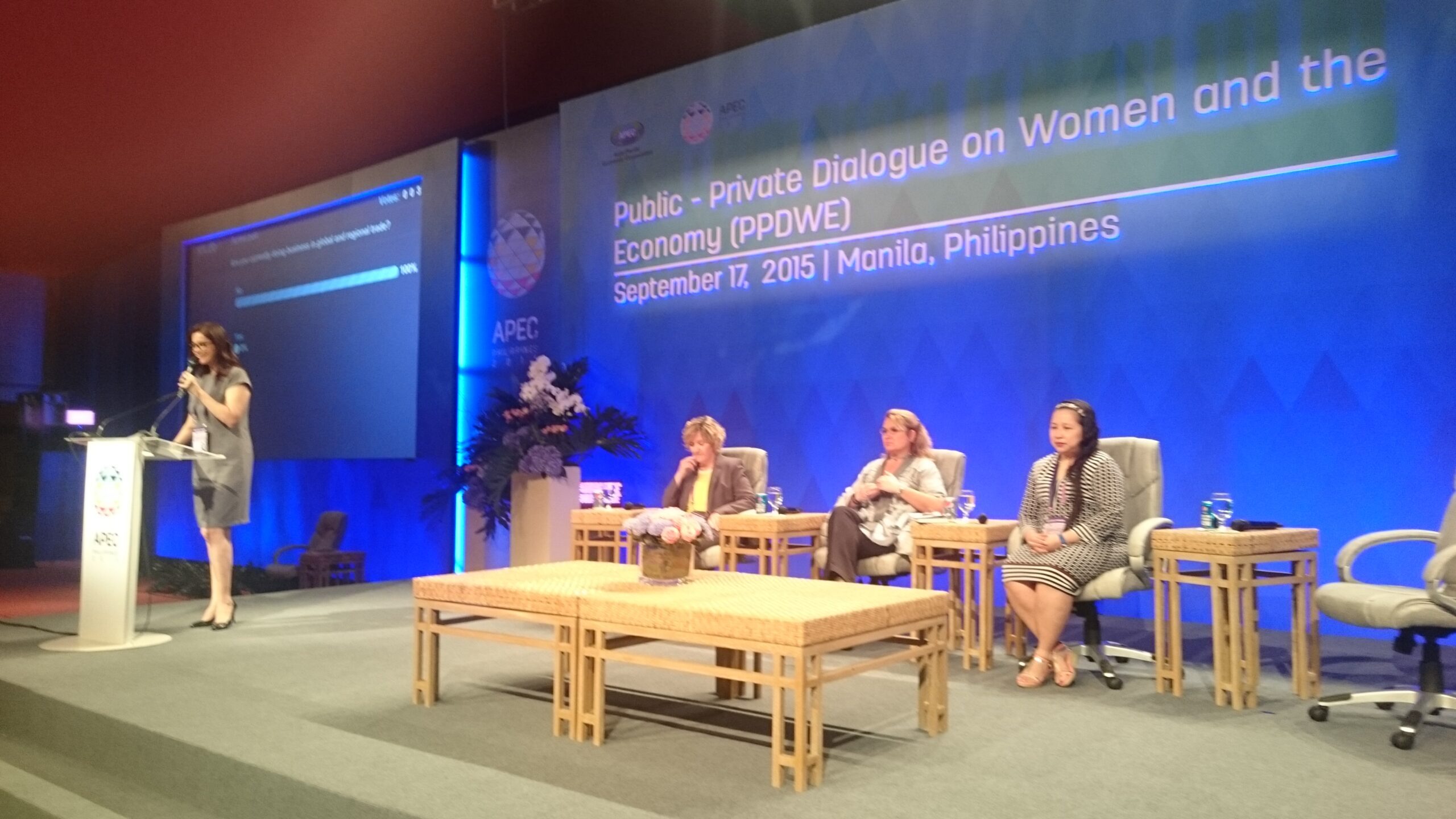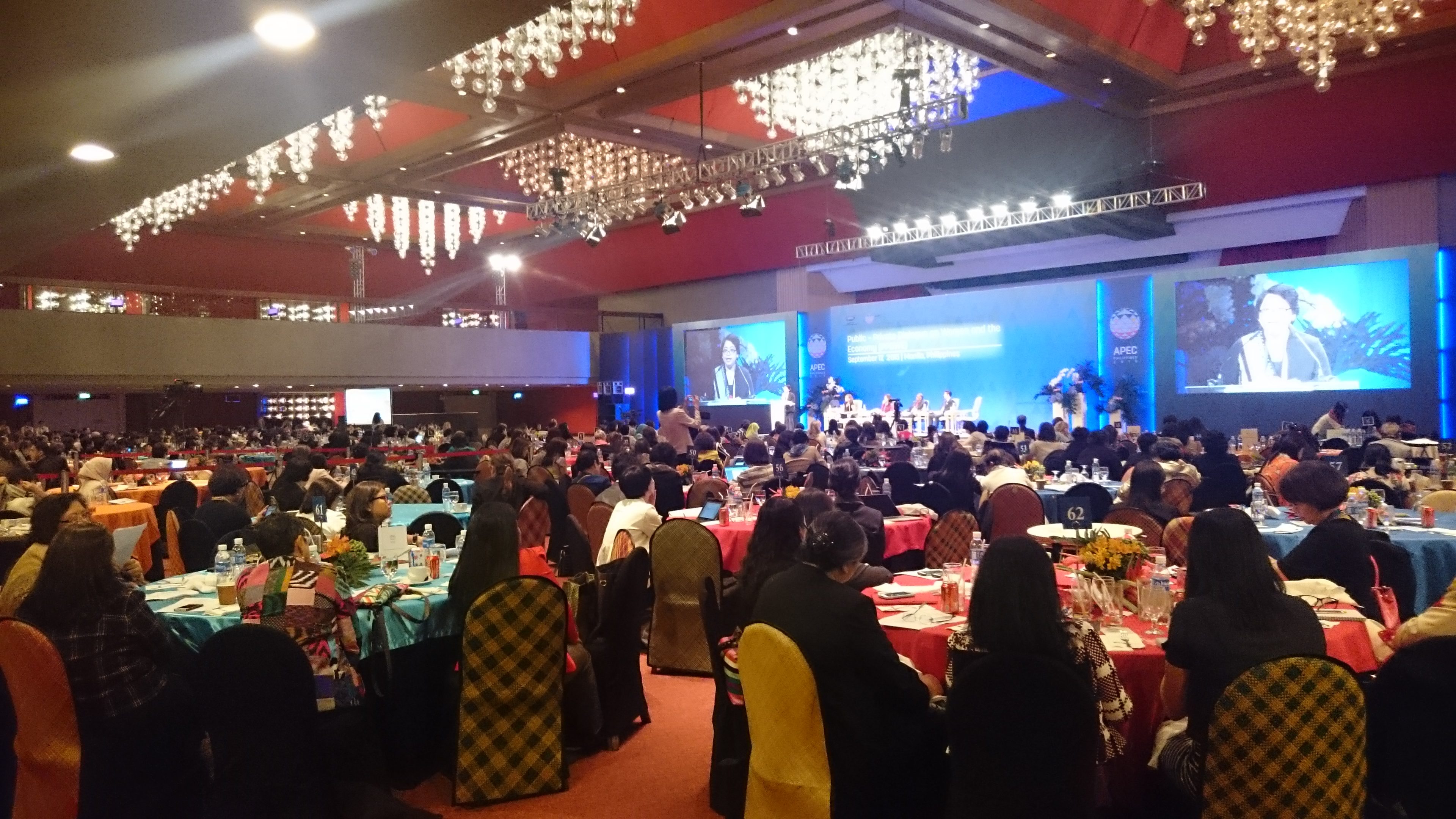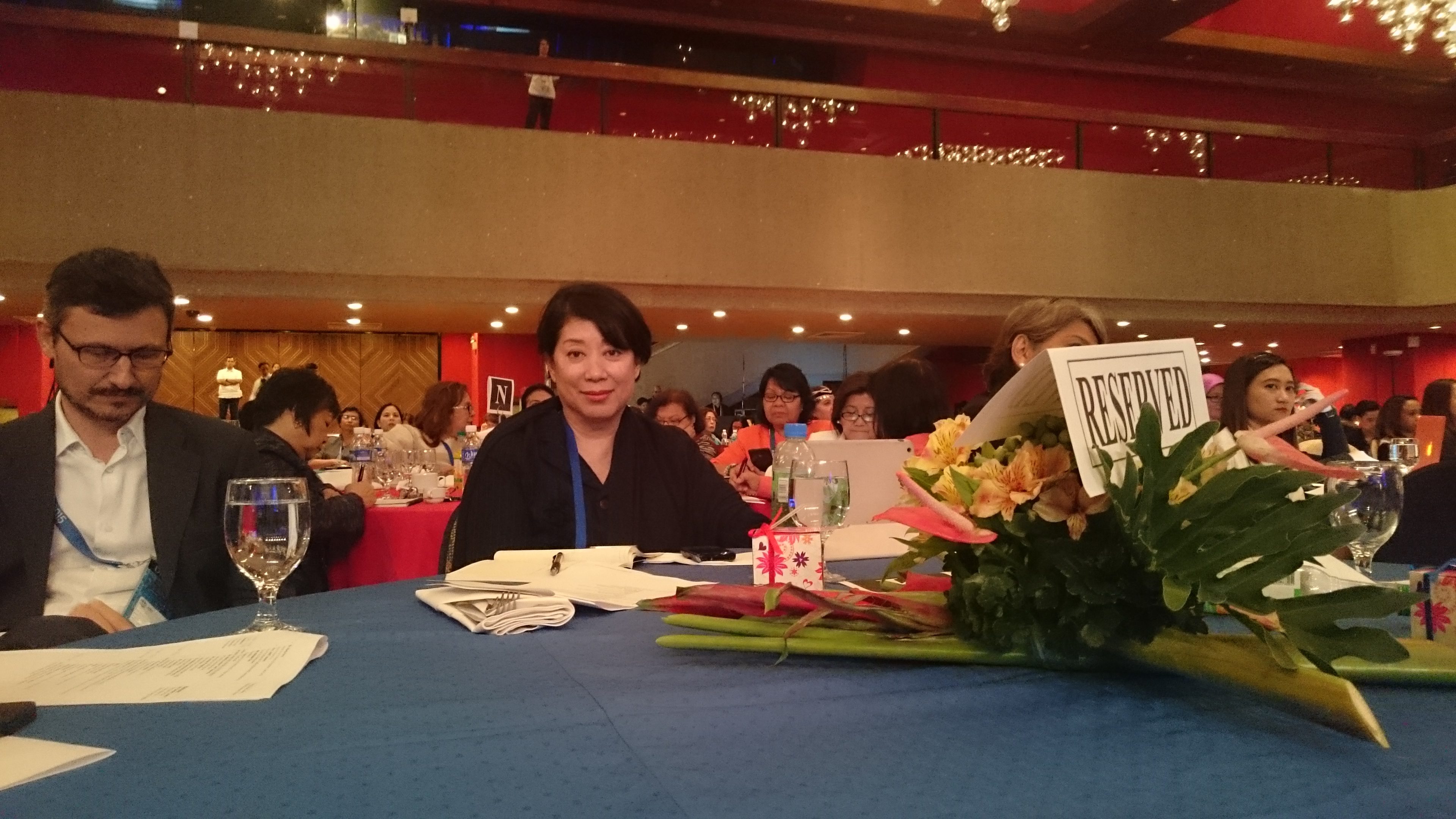SUMMARY
This is AI generated summarization, which may have errors. For context, always refer to the full article.

MANILA, Philippines – Technology has changed the way global business is conducted to such an extent that it is changing women’s mindsets and is emerging as a key factor toward gender equality in the workplace.
This was the theme of the day-long discussions among prominent women from all over the 21 Asia-Pacific Economic Cooperation (APEC) member-economies, who shared their insights on how to increase women participation in the global economy.
“In talent-strapped Asia, and especially in the technology industry, the opportunity to unlock the talent of young women is an incredible opportunity in this, the world’s fastest growing region,” said Adaire Fox-Martin, president of SAP Asia Pacific Japan.
Fox-Martin was speaking at the Public-Private Dialogue on Women and the Economy (PPDWE) on how women can be empowered, affect change, and create inclusive growth. It was part of the APEC Women and the Economy Fora 2015 on Thursday, September 17. (READ: Economic role of women boosted by APEC health toolkit launch)
“It took the telephone 75 years to reach 50 million users. The mobile game Angry Birds reached that number in 35 days,” Fox-Martin said to illustrate the speed at which the global economy is being disrupted.
Besides changing consumer patterns, technology is also rapidly changing people’s work habits, particularly that of women.
The mobile lifestyle where workers can work remotely is much more common now, and that means women can balance raising a child, and doing business and trade as well, Fox-Martin explained.
B2B
Technology has also changed the way things are produced, which directly affects women as they are under represented in global value chains.
The key concept when talking about global value chains is the concept of the business network, which she explained as the exponential rise of business to business (B2B) connectivity or as a sort of Amazon.com for businesses.
This allows suppliers to connect with buyers in the commercial world and small companies to extend beyond their local market and sell to the world.
Today, between 31%-38% of firms classified as micro, small, medium enterprises are owned or partially owned by women yet only 1% receive an order or are part of the supplier community of a large firm or government, Fox-Martin shared.
B2B networks today transact half a trillion dollars per year and allow for evaluation of small supplier companies on gender diversity or make sure that women are fairly represented in management.
Many governments and large multinationals are increasingly mandating firms to demonstrate gender equality elements in order to join their supplier network, Fox-Martin said.
Given the current low representation of women, that leaves an opening for firms that are women-owned or partially-owned, and allow them to join these global value chains.
“In the hyper-connected world of today, there are a multitude of opportunities for young women to start up business with a much lower cost of entry than in the past, flexible work time, and business networks that break the traditional networks and create new opportunities for businesses,” Fox-Martin said.

Crucial
Getting women to live up to their potential in the economy is absolutely crucial for APEC’s major aim of inclusive growth, shared APEC Business Advisory Council (ABAC) chairwoman Doris Magsaysay-Ho.
Women play a dominant role in the MSME sector, especially in this region where their influence can be in the numerous small stores scattered throughout the country. This was highlighted by President Benigno Aquino III in his keynote address at the dialogue. (READ: Aquino: Women are better partners for inclusive growth)
“We decided that inclusive growth, though it is a not new concept, should be the focus of our hosting of APEC this year because technology today now makes inclusivity possible,” Magsaysay-Ho said.
The rise of e-commerce, she shared as an example, empowers small store owners or entrepreneurs – men or women – as it allows them to sell to a much larger market or act as a supply depot for a much larger firm. (READ: How e-commerce connects PH SMEs to the world)
ABAC views it as such a potential game changer that it is working on a roadmap for e-commerce, which is expected in November, with the help of the University of Southern California.
The aim is to facilitate e-commerce development throughout APEC member economies by providing a guide to and streamlining different regulations spread across each member-economy.
All the efforts within APEC over the past year are meant to provide input into recommendations for changes of policy, said Magsaysay-Ho.
The PPWDE serves to bring in experts from the private sector who can then inform public officials on appropriate policy measures to help empower women, she explained.

Environment
Magsaysay-Ho, who also serves as the President and CEO of the Magsaysay Maritime Corporation, cited the need to develop measures to change the workplace environment in the country.
“Through my own experience as a mother, I’ve realized that the workplace in the formal sector assumes that someone is taking care of the employees’ family at home. The truth is that an employee is worried half the time about what’s going on at home,” she shared.
This can have a big effect on performance and lead to happier and healthier employees, she said. She suggested a good policy would be for firms to create and provide more benefits for women in the form of nurseries or day care services or flexible time. And again, technology has offered that opportunity.
“It’s a mindset or corporate DNA in the country that needs to change. I think that more and more discussions about these issues and more women in leadership positions might create these changes more quickly,” Magsaysay-Ho said. – Rappler.com
Add a comment
How does this make you feel?
There are no comments yet. Add your comment to start the conversation.